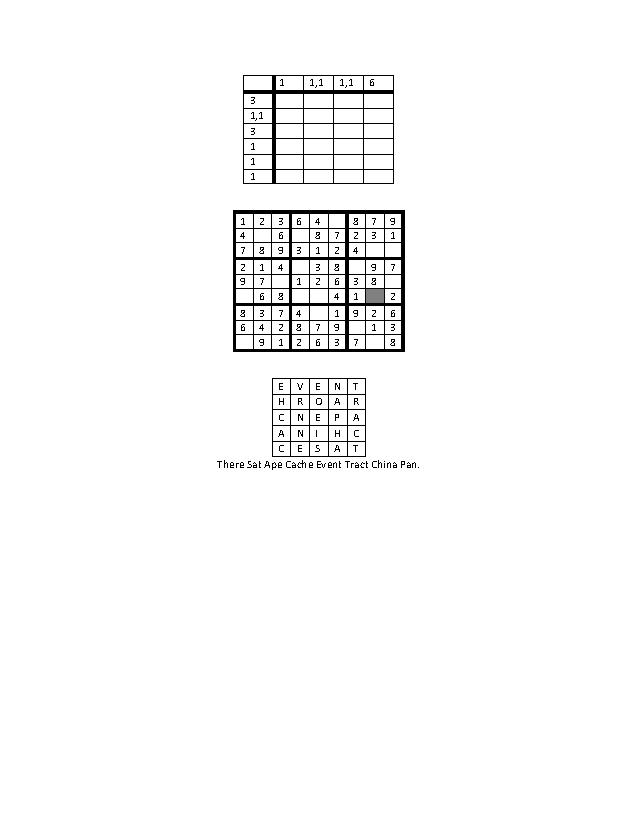FrodoB asked me to create a cache for an event that he's sponsoring that's intended to help new cachers learn the ropes. The idea is that the cache should be doable in an hour or so and that it will teach people something about caching. As folks who've seen my caches know, I mostly put out puzzles of one type or another, and many of them require some insight (and maybe a lot of work) to do. Obviously, this wouldn't fulfill Frodo's requirements. Nevertheless, I didn't want just to hide an ordinary, uninteresting traditional cache and I don't really have the skills to do truly creative camouflage. So, I decided instead to offer a puzzle that's designed to teach people how to solve other Geocaching puzzles.
A puzzle cache may take many forms. Some of them are just ordinary puzzles, the solution to which gives away the final coordinates of the cache. For instance, nonograms, Sudoku and find-a-word puzzles are quite popular. For these kinds of puzzles, usually you just solve the puzzle and the coordinates will be obvious. Sometimes, part of the puzzle might be shaded differently to indicate from where to read the coordinate. Alternately, you may have to solve the entire puzzle and discover that the coordinate is in the negative (unused) space.
If you're not sure how to do standard puzzles, you can always look on the web for their rules and tips on solving them. Wikipedia is often a great reference site for caching puzzles and other general info. One thing that's often helpful to remember is that you're trying to extract the coordinates from a puzzle, not to solve the whole thing; sometimes you can wind up doing a lot of work that didn't really help you along to your final goal of finding the cache. Sometimes, the coordinates might be represented as numbers, sometimes they're spelled out, sometimes they're even in Roman Numerals (and one time I resorted to using Spanish, because I couldn't get the puzzle to work out in English). If the puzzle encodes the entire coordinate including degrees, you can be pretty sure that the degrees will match the cache listing. This can help verify that you're on the right track, or give you valuable information about how the puzzle works

Sometimes, it's not immediately obvious what to do, and your first job is to find the puzzle. Every once in a while it's easy, but more often you're forced to look for odd stuff in the web page like dangling prepositions or the word "Pompeii." Very badly constructed mystery caches are what I call "read-my-mind" puzzles, where there's really no way to figure them out beyond luck, brute force or, well, reading the mind of the one doing the puzzle designing. Everyone prefers a less-random puzzle that includes some kind of hint to work with. Naturally, people also try to do clever stuff like hiding the coordinates in the HTML source of the page (do View->Source and look through the result), using the first (or even last) letters of sentences, embedding letters that are different (say in a larger font or in italics) or having writing that's (multiply) self-referent.
As of August, 2025 I've moved the final to a location where it's less likely to be overgrown. After solving the puzzle, subtract 0.010 minutes of latitude and 0.030 minutes of longitude from the solution to get the final coordinates.